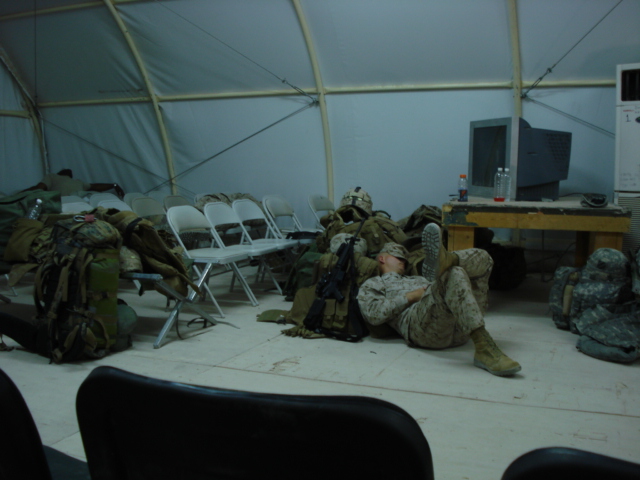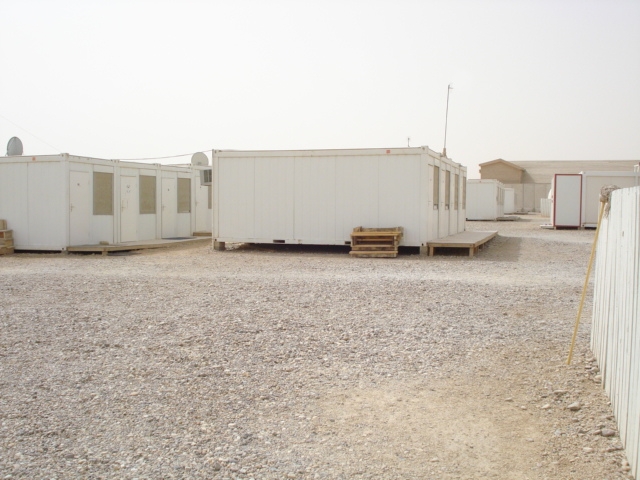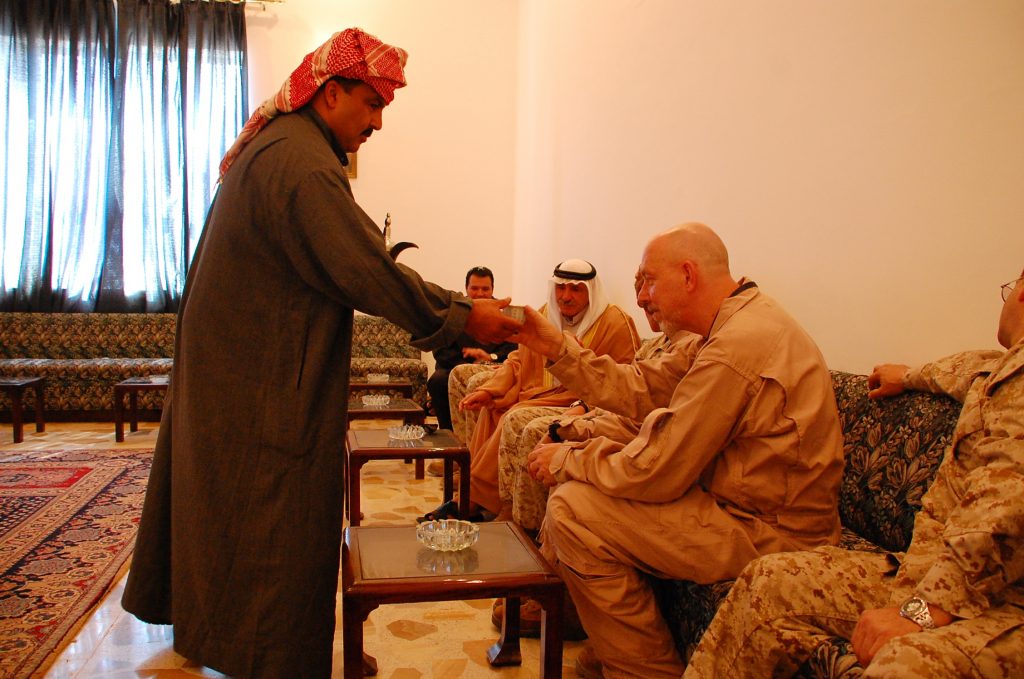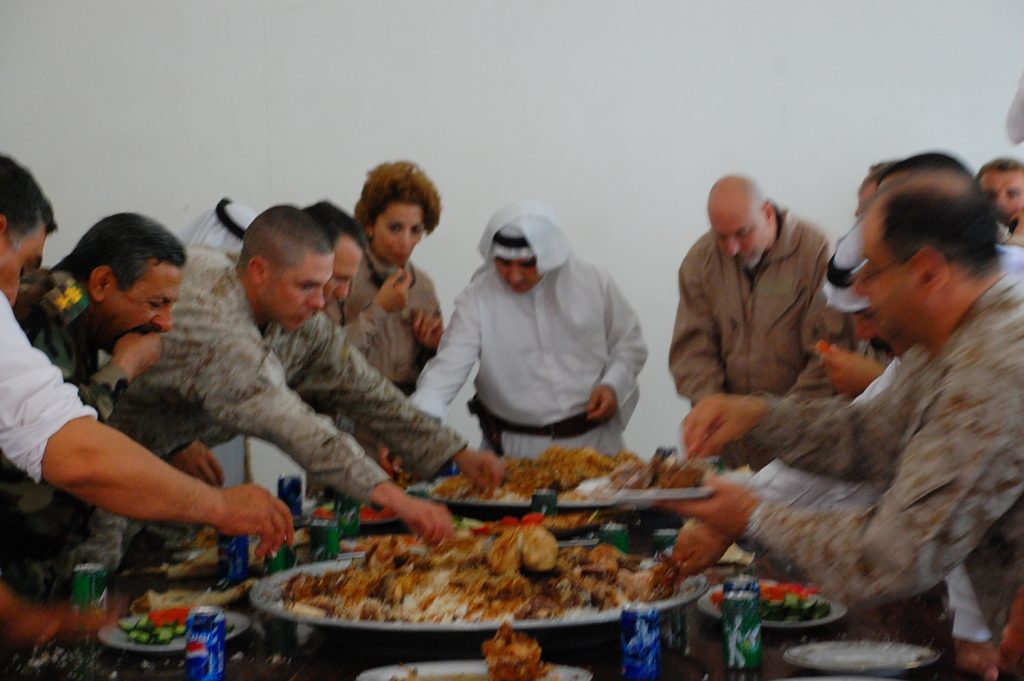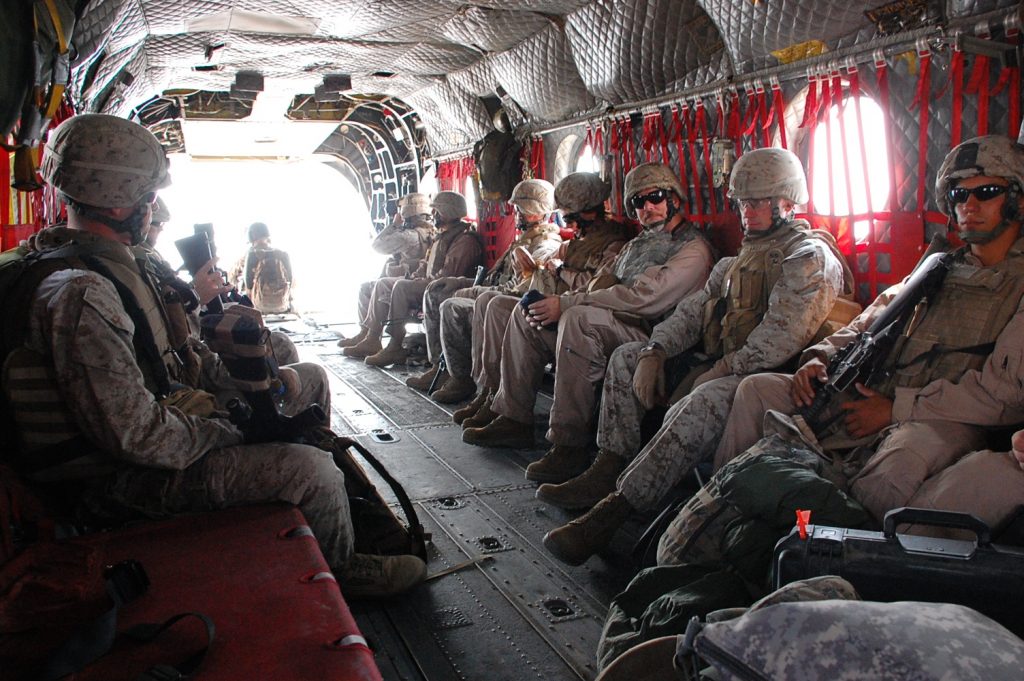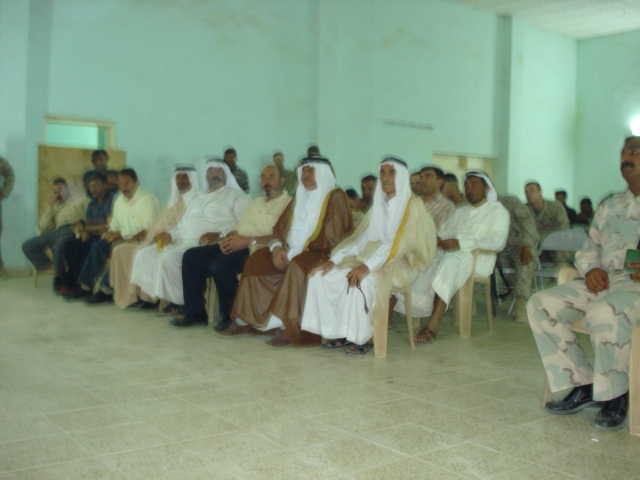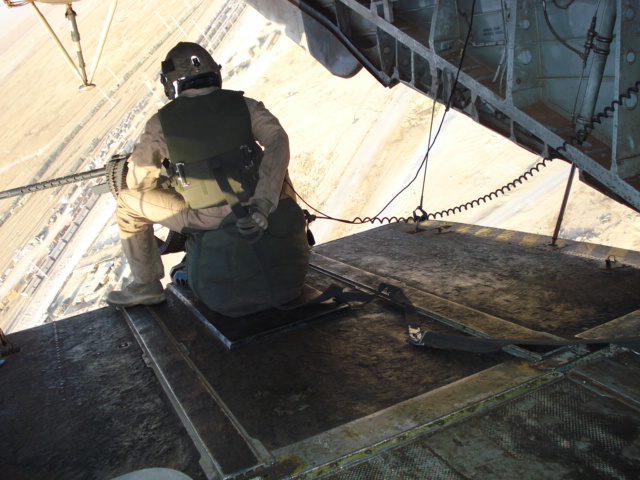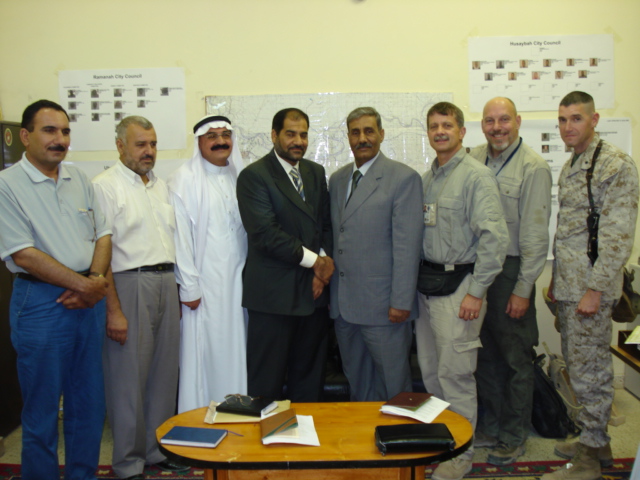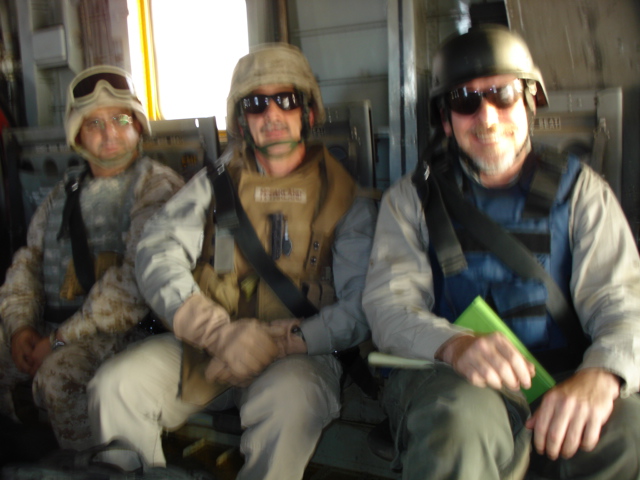Today we are in Baghdad hearing from important people that the jobs we are doing are important. I am just trying to learn how to do it right. All the PRT team leaders are here. There are about 20 of us from around Iraq. Most of the conference has been insider stuff, interesting to me but only because I need to know it. I will not go into detail. Suffice to say that we have big jobs to do, big enough to scare me. For probably the first time in my career I am getting (at least promised) most of the resources needed to do the job, so if I mess it up it will be my fault.
Baghdad looks different to me now. When I got here a couple weeks ago, I though it looked dry and brown. Now it looks green and lush. It all depends on your point of view. Coming from green Virginia, it is indeed a desert. Coming from dusty Anbar, it is a well watered wonderland. It is cooler now. The weather has changed and it is actually very pleasant most of the time.
Our complex is on the grounds of one of Saddam’s palaces and the embassy is in the palace itself. It is a very impressive place, now cut up by us into office space. Saddam spared no expense on his own living space and the place has interesting marble work, complex ceiling etc. In our meeting room I feel like the old State Department worker again, thinking the big thoughts and discussing the big events. When I have to try to do something on the ground, those discussions are sometimes useful (not always).
We had a talk by the director general of the FS. He thanked us for our service and listened to our complaints/comments. He assured the group that those fat-cats currently sitting in comfortable offices will soon be asked to do their part. (And gentlemen in England now-a-bed Shall think themselves accurs’d they were not here, And hold their manhoods cheap…sorry it just seemed appropriate) State Department has up till now managed to staff its Iraq positions with volunteers, but it is getting harder. There are only 6500 Foreign Service generalists and the director says that 20% of us have already been to Iraq or Afghanistan. Neverthelesss, some of the people who volunteer do not have the needed skills and some of the people with the needed skills do not volunteer and since there are no very many of us in general, staffing is an issue.
We are becoming an expeditionary service. I am not sure I like the idea of an expeditionary FS. I came to Iraq for a variety of reasons. The choice made sense to me. I would not have made the same choice when my kids were younger. Others make different choices. This is where my particular skills are currently best employed and I am proud to serve here, but it is very possible for someone to be doing more for our great country elsewhere. A diplomat who has become expert in Germany, France or Japan may better employ his skills in those pleasant places than in the deserts of Anbar. (he which hath no stomach to this fight, Let him depart) Some pleasant jobs are also very demanding and important. There is no virtue in making him come here out of some fairness principle or promoting him slower even if he shows real accomplishments. Most of my colleagues in Iraq disagree, but what does “fair” mean? Is it fair to get promoted just for living in a hardship? The fact that I can withstand desiccating winds does not by itself indicate competence. I think it should matter what you do, not where you were. Having actually withstood those desiccating winds, even for the short time, I can say that w/o fear of being marked as a malingerer or a mollycoddle, but I think it is true. But how does State staff these positions when we few, we happy few (be he ne’er so vile, This day shall gentle his condition) are used up?
There may soon be much wailing and gnashing of teeth in Foggy Bottom.

